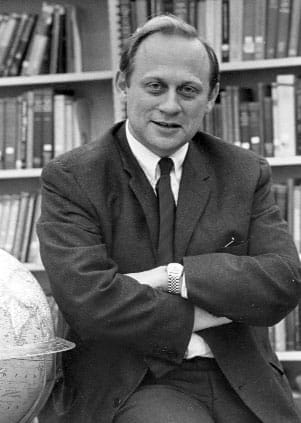 Howard Perlmutter has always had a gift for prediction. The Wharton Emeritus Professor and Director of the Emerging Global Civilization Project saw how multinational corporations would unfold as far back as 1972, before globalization had even begun to take shape. Twenty years later, his writings on meeting the challenges of the emerging global civilization garnered worldwide attention.
Howard Perlmutter has always had a gift for prediction. The Wharton Emeritus Professor and Director of the Emerging Global Civilization Project saw how multinational corporations would unfold as far back as 1972, before globalization had even begun to take shape. Twenty years later, his writings on meeting the challenges of the emerging global civilization garnered worldwide attention.
Perlmutter has long been a world authority and pioneer on globalization issues. His groundbreaking 1972 work, “The Multinational Firm and the Future,” accurately forecast viability and legitimacy issues for multinational corporations. In 1998-1999, the Financial Times published his four-article series on multinationals and the emerging global civilization — articles that received worldwide attention for their call to action on challenges ranging from the environment to ethnic and religious conflict, global terrorism with weapons of mass destruction, and global regulation. Today, as he considers the turbulence of 9/11, the ongoing war with Iraq, the increasing threat of weapons of mass destruction and nuclear terrorism, among other global concerns, Perlmutter’s predictions have become more dire.
“It’s a race against time,” he says. “We have to decide whether we are going to have a first global civilization, and thus work out a way to build cooperation among people who have never cooperated before, some of whom are very great enemies and have major religious differences. Or will we become the last global civilization — will our inability to cooperate and connect destroy our world.” Perlmutter is at work on a book, titled First or Last Global Civilization?, that provides an action model he hopes will help guide world leaders in working toward what he calls “a symbiotic cooperative potential.”
“In our increasingly global civilization, deep, constructive dialog competencies are essential,” Perlmutter told Knowledge@Wharton. “This is true not only in the world economy, but also between people in the political, social-cultural, scientific, technological, medical and ecological domains. Especially in the political realm, it is dialog or death.”


























